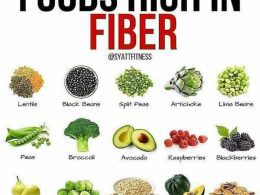Omega-3 fatty acids are essential nutrients crucial for maintaining optimal health. While fish is a well-known source, leafy greens offer a valuable plant-based option for obtaining these essential fatty acids.
Understanding Omega-3 Fatty Acids
Omega-3 fatty acids, including ALA, EPA, and DHA, are vital for reducing inflammation, supporting cardiovascular health, and enhancing cognitive function. Leafy greens are rich in ALA, a precursor to EPA and DHA.
Role of Leafy Greens in Providing Omega-3 Fatty Acids
Leafy greens, known for their nutrient density, serve as excellent sources of plant-based omega-3s. While they predominantly contain ALA, the body can convert this into EPA and DHA, although in smaller amounts compared to fish sources.

Top Leafy Greens Rich in Omega-3 Fatty Acids
1. Spinach: Nutrient-Packed Omega-3 Source Spinach stands out as a powerhouse of nutrients and contains a significant amount of ALA. Its inclusion in the diet has been linked to improved heart health and reduced inflammation.
2. Kale: Omega-3 Superfood Kale boasts a robust nutritional profile, including ALA content. Incorporating kale into meals supports heart health and provides various antioxidants and vitamins vital for overall well-being.
3. Collard Greens: Omega-3 Powerhouse Collard greens are rich in ALA and offer a range of health benefits. Their consumption contributes to a well-rounded diet, potentially reducing the risk of heart disease.
Cooking and Meal Preparation Tips
- To retain the maximum nutritional content, lightly cooking or steaming leafy greens is advisable.
- Blending leafy greens into smoothies or using them as a base for salads ensures a convenient and nutritious intake of omega-3s.
Health Benefits of Consuming Omega-3 Rich Leafy Greens
Scientific studies have consistently shown that consuming leafy greens rich in omega-3s contributes to improved cardiovascular health, reduced inflammation, and potential cognitive benefits. These greens also support overall well-being due to their high nutrient content.
Sustainability and Considerations
The production of leafy greens generally has a lower environmental impact compared to animal-based omega-3 sources. Individuals with dietary restrictions or allergies can benefit from these plant-based options, although moderation and balance in the diet are key.
Supplements and Additional Sources
While leafy greens offer omega-3s, supplements like algae-derived DHA cater to specific dietary needs. However, consulting healthcare professionals before supplementing is advisable for personalized guidance.

Conclusion
In conclusion, incorporating omega-3 rich leafy greens into the diet significantly contributes to overall health. From spinach to kale and collard greens, these nutritional powerhouses offer numerous health benefits and serve as an essential component of a balanced diet for heart health, brain function, and overall well-being.












